#cow dung
Text
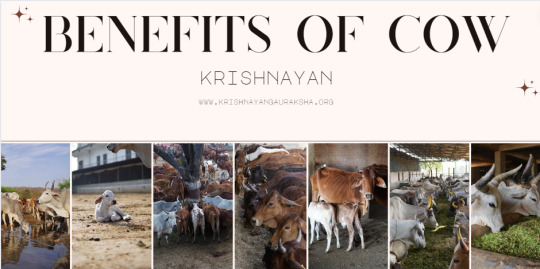
The Sacred Legacy of Desi Cows: Nourishing Body, Mind, and Soul
Cows have long been revered in Indian culture as more than just domesticated animals; they are revered as sacred beings embodying divinity, abundance, and purity. Among the various breeds, Desi cows hold a special place, cherished for their unique attributes and profound contributions to every facet of life. From providing nourishment and healing to fostering environmental sustainability and spiritual enrichment, the significance of Desi cows transcends mere practicality, intertwining with cultural, religious, and ethical values.
Spiritual Significance: In Hindu scriptures, Desi cows are depicted as symbols of strength, wealth, and prosperity. Their hump symbolizes power, while their gentle demeanor reflects purity and grace. The melodious sound of their "OM" resonates with spiritual significance, invoking a sense of tranquility and reverence among believers. Desi cows are revered as embodiments of divinity, fostering a deep connection between humanity and the divine.
Nutritional Superiority: The milk of Desi cows, classified as A2 milk, is renowned for its nutritional richness and health benefits. It serves as a complete food source, bolstering immunity, enhancing brain function, and aiding in the management of various ailments, including diabetes. Derived products such as curd, buttermilk, butter, and ghee are treasured for their medicinal properties, forming integral components of Ayurvedic remedies that have been passed down through generations.
Medicinal Properties: Cow urine (Gaumutra) and dung (Gobar) are esteemed for their exceptional medicinal properties. Gaumutra is believed to possess anti-cancerous properties and is utilized in the production of organic fertilizers, insect repellents, and traditional medicines. Gobar, revered as a natural fertilizer, enriches soil fertility and promotes agricultural productivity. The amalgamation of five cow products, known as Panchagavya, serves as a potent remedy for various chronic ailments and purifies the human body.
Environmental Sustainability: Desi cows play a crucial role in fostering environmental balance and sustainability. Their dung and urine act as natural purifiers, enriching soil quality and restoring ecological harmony. By embracing cow-based organic farming practices, farmers mitigate the harmful effects of chemical fertilizers, safeguarding both human health and environmental integrity.
Cultural Practices: Cuddling and nurturing cows are integral cultural practices rooted in compassion and reverence for all life forms. The act of embracing a cow fosters emotional well-being, alleviating stress, and promoting holistic healing. These practices, reminiscent of Lord Krishna's affection for cows, embody the essence of interconnectedness with nature and the universal principle of compassion.
Spiritual Rewards: Serving Desi cows and utilizing their products in religious rituals and ceremonies are believed to confer spiritual blessings and divine favor. Desi cow ghee, in particular, holds a sacred status in yagnas, symbolizing purity and auspiciousness. It is believed that the benevolent presence of 33 crore deities resides within Desi cow products, bestowing blessings upon those who honor and cherish them.
In essence, the legacy of Desi cows transcends mere physical existence, encompassing spiritual, cultural, and practical dimensions. Their benevolent presence enriches human lives, fosters environmental harmony, and perpetuates timeless traditions rooted in reverence and gratitude. As custodians of this sacred legacy, it is our responsibility to cherish and protect these divine beings, ensuring their preservation for generations to come.
0 notes
Text
Welcome to Pasuthai
When Britishers invaded India, they were astonished for two things:
one is our Gurukul Education & the other one is our traditional method of Farming / Agriculture. We worship Cow next to our Mother & Motherland.
Preserving India’s Agricultural Heritage: The Significance of Bharatiya Cows in Traditional Farming.
India’s rich agricultural heritage has been shaped by centuries of traditional farming practices, rooted in sustainability, harmony with nature, and great respect for the land. Central to this agricultural ethos is the integral role played by Bharathiya cows, which are greatly respected not only as sacred animals but also as essential\important partners in farming. However, during the colonial era, British rulers sought to undermine these traditional practices, recognizing the potential threat they caused to their economic interests. This article explains the profound significance of Bharathiya cows in traditional Indian farming and the deliberate efforts by colonial powers to disrupt this harmonious system.
The Role of Bharatiya Cows in Traditional Farming:
In traditional Indian agriculture, Bharathiya cows are considered sacred and are deeply integrated into farming practices. These indigenous cow breeds, such as Gir, Sahiwal, and Tharparkar, provide more than just milk; they are valued for their dung and urine, which serve as invaluable resources for fertilization and pest control.
Cow Dung as excellent Fertilizer: Bharathiya cow dung is renowned for its high nutrient content, making it an excellent natural fertilizer. When mixed with other organic matter, such as crop residues and compost, cow dung enriches the soil with essential nutrients like nitrogen, phosphorus, and potassium, promoting soil fertility and enhancing crop yields.
Urine as Pesticide: Cow urine, also known as “Gomutra,” has long been revered in Ayurveda for its medicinal properties and pest-repellent qualities. When diluted and sprayed on crops, cow urine acts as a natural pesticide, warding off pests and diseases while promoting plant health. Its antibacterial and antifungal properties make it an effective alternative to chemical pesticides, without harmful environmental impacts.
The Colonial Agenda to Undermine Traditional Farming:
During British colonial rule in India, the agricultural landscape underwent significant transformations driven by imperialist agendas aimed at exploiting India’s resources for the benefit of the colonial power. Recognizing the central role of Bharathiya cows in traditional farming, colonial administrators devised strategies to undermine these practices and promote dependency on British-controlled agricultural inputs.
Threat to Traditional Farming: Colonial administrators, including figures like Robert Clive, recognized the threat posed by Bharathiya cows to their economic interests. By promoting the slaughter of indigenous cow breeds and discouraging traditional farming practices reliant on cow dung and urine, they sought to dismantle the self-sufficient agricultural systems that had sustained Indian communities for generations.
Imposition of Chemical Inputs: Under colonial rule, the promotion of chemical fertilizers, manure, and pesticides became a central aspect of agricultural policies. British authorities motivated the adoption of imported chemical inputs, which not only displaced traditional organic farming practices but also created dependency on foreign markets, perpetuating economic exploitation and environmental degradation.
Preserving India’s Agricultural Heritage:
Despite the challenges posed by colonial interventions and subsequent modernization efforts, the importance of Bharathiya cows in traditional farming cannot be overstated. Today, as India confronts pressing environmental and agricultural sustainability challenges, there is a renewed interest in reviving indigenous farming practices and promoting the conservation of native cattle breeds.
Revival of Organic Farming: With growing concerns about chemical inputs’ adverse effects on soil health, water quality, and human health, there is a reappearance of interest in natural farming methods rooted in traditional knowledge. By harnessing the natural fertility of cow dung and urine, farmers can cultivate crops sustainably while preserving soil biodiversity and reducing environmental pollution.
Conservation of Indigenous Cattle Breeds: Efforts to conserve and promote indigenous cattle breeds like Gir, Sahiwal, and Tharparkar are gaining momentum across India. Government initiatives, grassroots organizations, and community-led conservation efforts aim to safeguard these invaluable genetic resources, recognizing their role in preserving biodiversity, enhancing rural livelihoods, and promoting sustainable agriculture.
Conclusion:
The enduring legacy of Bharathiya cows in Indian agriculture underscores the importance of preserving traditional farming practices rooted in ecological harmony and cultural reverence. Despite centuries of colonial exploitation and modernization pressures, the resilience of India’s agricultural heritage endures, offering valuable lessons for sustainable development and food sovereignty in the twenty-first century. By embracing indigenous knowledge and prioritizing the conservation of native cattle breeds, India can chart a path towards agricultural resilience, ecological stewardship, and cultural renewal.
Through a concerted effort to reclaim and celebrate its agricultural heritage, India can not only strengthen its rural communities but also inspire a global movement towards regenerative farming practices that nourish both people and planet.
In India Farm Animals particularly cattle are the backbone for Agriculture. We used Bharathiya cow’s dung as an excellent Fertilizer/ Manure & cow’s urine as a premium pesticide. Robert Clive thought, if cows are eliminated then Indian Traditional Farming method will be destroyed; if Bharathiya cows are slaughtered then Indian Farming will head to the path of devastation & thereby Indians are forced to depend on Britishers for Chemical Manure & Pesticides. Foreign Chemical Fertilizers, Manure & pesticides has made a way into India in this planned manner by Britishers.
0 notes
Text
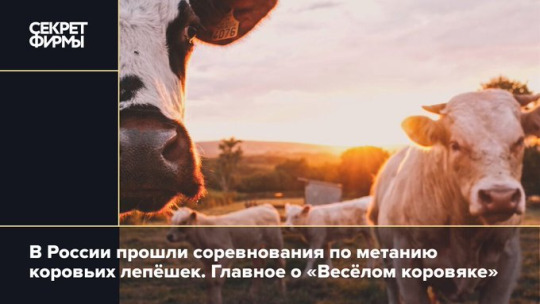
A cow dung throwing competition was held in Russia. The main thing about “Jolly Mullein”
The “Jolly Mullein” tournament was held in the Perm region for the 13th time. The holiday coincides with the day of the village of Krylovo. True, guests from different parts of the region come there not only to celebrate the next anniversary - they are attracted by the cow dung throwing tournament. The absolute record of the competition is 64 m. In 2023, it was not possible to beat it - the winner was the participant who threw cow dung 57 m.
0 notes
Link
1 note
·
View note
Text
Cow Dung Manure: Nature's Nutrient-Rich Fertilizer

In the world of gardening and agriculture, organic fertilisers have gained significant attention in recent years. One such natural marvel that has been cherished for centuries, often termed "black gold" by seasoned gardeners and farmers, is cow dung manure. This age-old practice involves recycling cow dung to create a nutrient-rich fertilizer that benefits plants and supports sustainable and eco-friendly cultivation methods. In this article, we'll delve into the remarkable properties of cow dung manure and explore its numerous advantages to the world of agriculture and horticulture.
An Ancient Tradition:
The practice of using cow dung as a fertilizer dates back centuries in various agricultural traditions worldwide. The reasons behind its enduring popularity are rooted in its exceptional qualities that cater to both the needs of plants and the environment.
Nutrient-Rich Elixir:
Cow dung manure is a powerhouse of essential nutrients for plant growth. It contains significant quantities of the three primary macronutrients - nitrogen, phosphorus, and potassium (N-P-K). These elements are pivotal for various aspects of plant development, from leafy green growth to root development and flowering. However, cow dung manure isn't just about the N-P-K trio; it's also rich in micronutrients such as calcium, magnesium, sulfur, and several trace elements. These micronutrients are vital for the overall health and well-being of plants.
Balanced and Slow-Release Nutrition:
One of the remarkable qualities of cow dung manure is its slow-release nutrient profile. Unlike synthetic fertilizers that can deliver a quick burst of nutrients, cow dung manure releases its nutrients gradually as it decomposes. This slow-release property ensures that plants receive a sustained source of nourishment throughout their growing period. It prevents the risk of nutrient overload and minimizes the potential for leaching into groundwater, which is a common issue with chemical fertilizers.
Soil Enrichment and Improved Texture:
Besides its nutrient content, cow dung manure acts as a natural soil conditioner. When incorporated into the soil, it works to improve the soil's structure and texture. For clayey soils, it enhances drainage and aeration, preventing waterlogging. In contrast, for sandy soils, it increases water and nutrient retention, preventing them from drying out too quickly. This balance is crucial for maintaining the optimal moisture levels for plant growth. Moreover, cow dung manure encourages beneficial microbial activity in the soil, enhancing its overall fertility.
Weed Suppression:
A surprising benefit of using cow dung manure is its ability to suppress weeds. When applied as a thick layer of mulch, cow dung acts as a natural weed barrier. This reduces the time and effort needed for weeding, while also minimizing the need for chemical herbicides. It's a win-win situation, as you maintain a weed-free garden without the environmental concerns associated with synthetic herbicides.
Environmentally Friendly:
Cow dung manure is a sustainable and eco-friendly choice. By utilizing cow dung as a natural fertilizer, you're contributing to the reduction of greenhouse gas emissions that would result from its decomposition in landfills. It also helps minimize the environmental impact of chemical fertilizers, which can lead to soil degradation, water pollution, and harm to beneficial organisms.
Enhanced Soil Microbial Activity:
Healthy soil is teeming with beneficial microorganisms, including bacteria, fungi, and earthworms. Cow dung manure fosters the growth of these microorganisms, creating a thriving environment for nutrient cycling and soil health. The presence of these microbes helps in the decomposition of organic matter and the release of nutrients for plant uptake.
Pest and Disease Resistance:
Cow dung manure is more than just a source of nutrients. It contains natural compounds that deter certain pests and pathogens. This reduces the reliance on chemical pesticides, benefiting the environment and the broader ecosystem. By using cow dung manure, you're supporting the health of not only your garden but also the surrounding environment.
Cost-Effective:
From a financial perspective, cow dung manure can be highly cost-effective. If you have access to a local source of cow dung, it can often be acquired at a minimal cost, or even for free in some cases. This affordability makes it an excellent choice for those looking to minimize gardening expenses while still achieving bountiful yields.
In conclusion, the use of cow dung manure is a testament to the wisdom of traditional farming practices. It provides a sustainable, nutrient-rich, and environmentally friendly way to enhance soil fertility, promote plant growth, and support overall garden health. Whether you're a seasoned gardener or just starting out, considering cow dung manure as your natural fertilizer of choice is a step towards a thriving, green, and sustainable garden. In an era where sustainability is paramount, cow dung manure stands as a true exemplar of nature's wisdom.
0 notes
Text
Jharkhand में किसानों से दो रुपए प्रति किलो गोबर खरीदेगी सरकार
Ranchi: छत्तीसगढ़ की तर्ज पर अब झारखंड में भी सरकार किसानों और गोवंश पालकों से गोबर खरीदेगी। इसके एवज में किसानों को प्रति किलोग्राम दो रुपए की राशि का भुगतान किया जाएगा। खरीदे गए गोबर का उपयोग वर्मी कंपोस्ट बनाने में किया जाएगा। यह वर्मी कंपोस्ट किसानों को वापस आठ रुपए प्रति किलोग्राम की दर से उपलब्ध कराया जाएगा। सरकार ने इस योजना का नाम गोधन न्याय योजना रखा है और इसे पायलट प्रोजेक्ट के तौर पर…
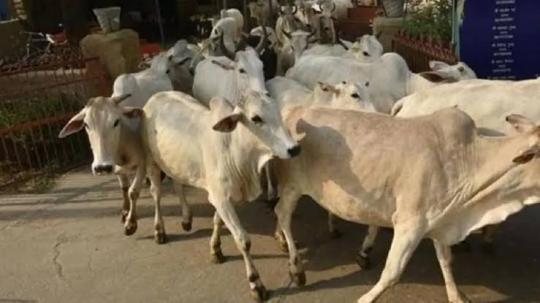
View On WordPress
0 notes
Text
Organic Manure Powder | Organic fertilizer 1 Pack 50 kg
Organic manure powder is a type of organic fertilizer that is made from organic materials. It contains a variety of nutrients that are essential for plant growth, including nitrogen, phosphorus, potash, calcium, magnesium, zinc, boron, copper, humic acid, amino acids and seaweeds. The process of preparing organic manure involves mixing different organic materials such as cow dung, poultry manure, rock phosphate, bio-compost, and gypsum.
https://www.narmadagro.com/organic-manure-powder/
0 notes
Text
Cow Dung Sambrani Cup can be Very Helpful for Your Health!
We prefer using pure and natural things these days. While using these products we want to enhance the quality of life and our health. When it comes to hygiene, the use of the natural and pure products at homes can bring amazing result. And when we are getting involved into the spiritual act like puja, the use of the cow dung dhoop batti can bring a great outcome for sure. It’s the puja time when you want to feel very pure and light with your soul and mind. Due to this reason, we must use the dhoop batti. But this time it’s going to be made from the cow dung and pure ghee. For the Hindus, with every ritual they need to worship their gods and goddess while offering them flowers, and dhoop batti. This is the most common ritual they use to follow while doing the puja. Here first you need to understand and know the cow dung dhoop batti benefits before you use it.
This dhoop batti is surely a great choice for your puja time. However, this also brings several other benefits that you must know. When it comes to the benefits of cow dung dhoop batti benefits, this dhoop batti can purify the air of your home easily. It’s the cow dung that is best known for its anti bacterial property. So when this is used to make the dhoop batti and you light up it, the same property can also remain in the air of your home for a long time. When you light up this dhoop batti, it is going to bring a calm and sacred feeling. This feeling purifies your mind and soul to a great extent.
The cow dung dhoop batti benefits can be many. In order to make such product no chemicals and charcoal are used. Rather natural herbs are used to enhance its aroma and fragrance. When you light up this dhoop batti, it promotes a spiritual and religious aura at your home and that surely makes you and your family members feel great. With the regular agarbathis coming to the market these days, you are surely not going to receive this type of feel on the use. Due to this reason, the cow dung dhoop batti is considered as the best choice for the puja time.
When you are looking for a sacred and spiritual feeling, the use of the cow dung sambrani cup can also bring amazing result for you on the use. There are some big benefits such product can bring for the users. The prime traditional benefit that the cow dung sambrani cup can bring is that it can remove the negativity at your place and can promote a positive environment easily. This effect is also going to last for a very long time. Every sambrani cup comes with the fragrance that is very long lasting one. This fragrance is based on the ancient temple practice. It’s the cow dung sambrani cup that is the most ancient practice for Indian incense.

Cow Dung Sambrani Cup
When it comes to the cow dung sambrani cup, the presence of the sambrani is very important. This has many benefits such as it’s a very good disinfectant and antiseptic. It is best known for the anti inflammatory property. When you use the sambrani cup, this helps in relieving stress and can also be used to treat the skin infections. Those who are suffering from bronchitis and asthma can find a great relief with the use of the cow dung sambrani cup. It also helps with healing the wounds, ulcers as well as eczema. By using this product, you can enhance the quality of life.
0 notes
Text
The Benefits of Cow Dungeon Cake.
Cow dung cakes have a number of health benefits and are used in several ceremonial rituals, such as fire sacrifice. When burned, they create a purifying atmosphere, clearing the air of germs. Additionally, cow dung cakes contain ghee, a substance that strengthens the ozone layer and shields the earth from harmful solar radiation. The cow dung cake is a great source of nutrients and can be used for fertilization and as organic manure. In addition, burning cow dung in an appropriate fire can disinfect the air, cleanse it of impurities, and boost oxygen levels.
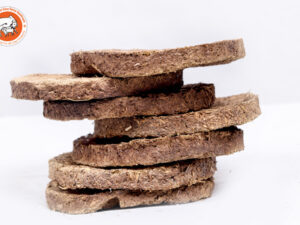
Cow dung cake is one of the oldest and most popular ayurvedic preparations in India. This product is used extensively throughout the country, and even exported to the United States. It contains high levels of fibers and nutrients and can be a useful biogas generator.
Cow dung cakes are often used as an insect repellent. They are also used as a disinfectant on floors and walls. While they are widely used in India and other Asian countries, they are also gaining popularity in America. Cow manure is used as a natural insect repellent, and the smoke from the cow dung cakes acts as a natural mosquito repellent.
1 note
·
View note
Text
सोना-चांदी छोड़ इस देश में धड़ाधड़ गाय क्यों खरीदने लगे हैं लोग?
सोना-चांदी छोड़ इस देश में धड़ाधड़ गाय क्यों खरीदने लगे हैं लोग?
लोग समूह में भी मवेशी खरीद सकते हैं या फिर स्वतंत्र रूप से गाय या बछड़े में हिस्सेदारी खरीद सकते हैं. जब गाय बछड़े को जन्म देगी तो क्लाइंट के पोर्टफोलियो में उसकी कीमत भी जुड़ जाएगी.
मवेशियों में निवेश करने लगे जिम्बॉब्वे के लाेग (सांकेतिक तस्वीर)
Image Credit source: Pexels
दक्षिण अफ्रीकी देश ��िम्बाब्वे इन दिनों भयंकर आर्थिक संकट से जूझ रहा है. महंगाई चरम पर है. जून में यहां की महंगाई दर…
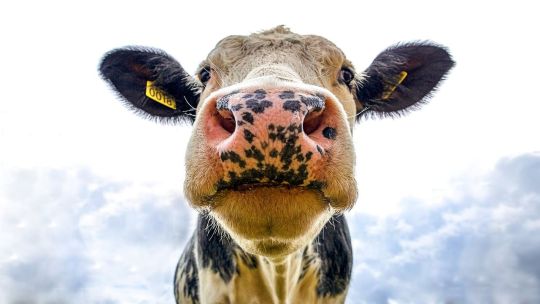
View On WordPress
0 notes
Text
गाय के गोबर से किसानों की आमदनी बढ़ाने के लिए मोदी सरकार ने उठाया कदम
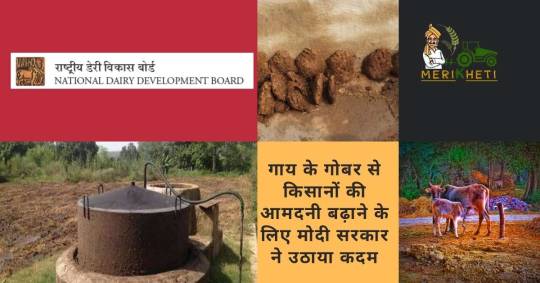
नई दिल्ली।
केन्द्र की मोदी सरकार लगातार किसानों की आमदनी बढ़ाने के लिए नए नए प्रयोग कर रही है। अब मोदी सरकार ने एक महत्वपूर्ण योजना बनाई है।
योजना के तहत गाय के गोबर को बायोगैस के रूप में प्रयोग किया जाएगा, जिससे किसानों की आमदनी बढ़ेगी।
पूरे भारत वर्ष में तकरीबन 30 करोड़ मवेशी हैं और घरेलू गैस की लगभग 50 फीसदी आवश्यकता, गाय के गोबर (Cow Dung) से बनी बायोगैस से पूरी हो सकती है। इनमें कुछ हिस्सा एनपीके उर्वरक (NPK – Nitrogen, Phosphorus and Potassium) में बदला जा सकता है।
उधर सरकार की प्राथमिकता के अनुरूप गाय के गोबर के मुद्रीकरण से डेयरी किसानों की आमदनी बढ़ाने की संभावनाएं बढ़ेंगी।ये भी पढ़ें: छत्तीसगढ़ की राह चला कर्नाटक, गौमूत्र व गाय का गोबर बेच किसान होंगे मालामाल!
सरकार ने डेयरी किसानों की आय बढ़ाने ���े लिए राष्ट्रीय डेयरी विकास बोर्ड (एनडीडीबी) की एक नई सहायक कंपनी एनडीडीबी मृदा लिमिटेड (NDDB MRIDA) का शुभारंभ किया है, जिसके तहत केंद्रीय मत्स्य पालन, पशुपालन और डेयरी मंत्रालय को एक वैधानिक स्थान मिलेगा। दूध, डेयरी उत्पाद, खाद्य तेल और फलों व सब्जियों का निर्माण, विपणन और बिक्री करने वाले किसानों को इसका फायदा मिलेगा।
केंद्रीय मत्स्य पालन, पशुपालन और डेयरी मंत्री, श्री पुरुषोत्तम रूपाला ने खाद प्रबंधन के लिए एनडीडीबी की सहायक कंपनी एनडीडीबी एमआरआईडीए लिमिटेड का लोकार्पण किया – इस प्रेस रिलीज़ (Press Release) का पूरा दस्तावेज पढ़ने के लिए, यहां क्लिक करें।
कैसे बनेगी गाय के गोबर से बायोगैस
गाय के गोबर से बायोगैस बनाने के लिए सबसे पहले पशुओं से प्रतिदिन उपलब्ध गोबर को इकट्ठा करना होता है, जो गोबर की मात्रा तथा गैस की संभावित खपत के आधार पर होगा। सरल तरीके से माना जाए तो, संयंत्र में एक घन मीटर बायोगैस प्राप्त करने के लिए गोबर 25 किग्रा प्रति घन मीटर क्षमता के हिसाब से प्रतिदिन डालना जरूरी है, जिसका औसत प्रति पशु और प्रतिदिन के हिसाब से डालना चाहिए।ये भी पढ़ें: कुवैत में खेती के लिए भारत से जाएगा 192 मीट्रिक टन गाय का गोबर
बायोगैस बनाने में कितना समय लगेगा
बायोगैस प्लांट (Biogas Plant) या गोबर गैस प्लांट लगवाने के लिए आपको सबसे पहले कृषि विभाग में आवेदन पत्र दाखिल करना चाहिए। इसके बाद कृषि विभाग अपनी टीम भेजकर अच्छा प्लांट तैयार करेंगे। करीब 5 से 7 दिन के अंदर यह प्लांट तैयार हो जाता है। इसके बाद इसमें 50 फीसदी गोबर और 50 फीसदी पानी भरा जाता है। कुछ समय बाद ही इसमें बैक्टीरिया एक्टिव हो जाते हैं और ऑक्सीजन के अभाव में मीथेन (Methane) गैस बनना शुरू हो जाती है।
source गाय के गोबर से किसानों की आमदनी बढ़ाने के लिए मोदी सरकार ने उठाया कदम
0 notes
Text
I need to take a beautiful girl with me into the French country side
#In my head this is the most gay vacation™ somehow#idk about this summer... but there must be a summer. canoodling in the sunflowers & grains to the smell of cow dung lol#but also take her out for the cutest patisserie and enjoy a beer in our camping folding chairs at night to the sound of crickets#End our day with the best loudest outdoor sex#personal
3 notes
·
View notes
Text
In the evening, it smells like damp grass ❤️
#Matt has a life#Shit from home#It also smells like cow dung but it's fine bc I like it too#it's the farm boy in me finding it nostalgic#less fun: there are so many mosquitoes and I completely failed to account for them x)
3 notes
·
View notes